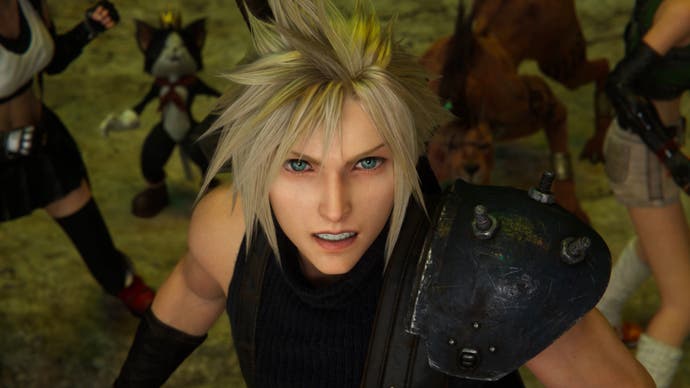Square Enix "aggressively pursuing" new multiplatform strategy after reports FF7 Rebirth underperformed on PlayStation
Profits declining.
Square Enix is "aggressively pursuing" a multiplatform strategy, including "Nintendo platforms, PlayStation, Xbox, and PCs".
The company's new medium-term business plan was shared today alongside its latest financial report, and follows news of both a review of its development system and the abandonment of £112m of in-development projects.
The multiplatform strategy is part of a move to "diversify earnings opportunities" and aims to allow more customers to "enjoy our titles in regards to major franchises and AAA titles including catalogue titles".
Square Enix's biggest releases in recent years have been console-exclusive to PlayStation, including the likes of Final Fantasy 7 Rebirth, Final Fantasy 16, and Forspoken, with PC releases either alongside or in the pipeline.
While no specific games are identified here, it suggests that some of the company's biggest could make their way to Xbox in future - or perhaps Switch 2. At the least, Square Enix's biggest game - Final Fantasy 14 - made its way to Xbox recently.
The strategy will "maximise digital sales of new titles" as well as "pursue initiatives designed to win over PC users" which the company sees as a growth opportunity.
The shift to multiplatform also includes mobile games, which will not only release on iOS and Android but potentially PC too. Mobile gacha game Final Fantasy Ever Crisis is already set for a Steam release.
Square Enix will also "leverage IP across media formats", suggesting the likes of Final Fantasy and Dragon Quest could be seen more outside of games.
The company's new development pipeline will shift from quantity to quality, balancing developer creativity with data from customers and the wider market. AAA releases will be released regularly, while "mid-class titles" will prioritise profitability. As such, it will be "bold" in creating new franchises, to prioritise "novel forms of excitement" balanced with earnings potential.
All of this is to focus on creating "unforgettable experiences", marketing talk for good games.
So why all this change? It's due to declining profits. The last financial year saw an increase in net sales of games of one percent, but a decrease in profit from games of 38 percent.
Games like Final Fantasy 16, Final Fantasy 7 Rebirth, and the Pixel Remasters boosted sales, but a year-on-year decline in MMO and mobile games plus high development costs accounted for the loss in profit. The £112m write-off also impacted profits.
No specific sales are given, but Final Fantasy 7 Rebirth has reportedly underperformed despite being the fourth biggest game in the US so far this year.
Other sectors did fare better: merchandise profits, for instance, had a 51 percent increase in profit.
So what's next for Square Enix? Most imminent is the release of Final Fantasy 14 expansion Dawntrail, which will likely provide a boost in profits. As previously reported, it's the most profitable game in the series, while previous expansion Endwalker was so popular the game had to be taken off sale.
After that, there is the PC release of Final Fantasy 16, and a presumed PC release of Final Fantasy 7 Rebirth following its Remake equivalent.





_9umpgD2.jpg?width=291&height=164&fit=crop&quality=80&format=jpg&auto=webp)


_m1xb4JO.png?width=291&height=164&fit=crop&quality=80&format=jpg&auto=webp)
